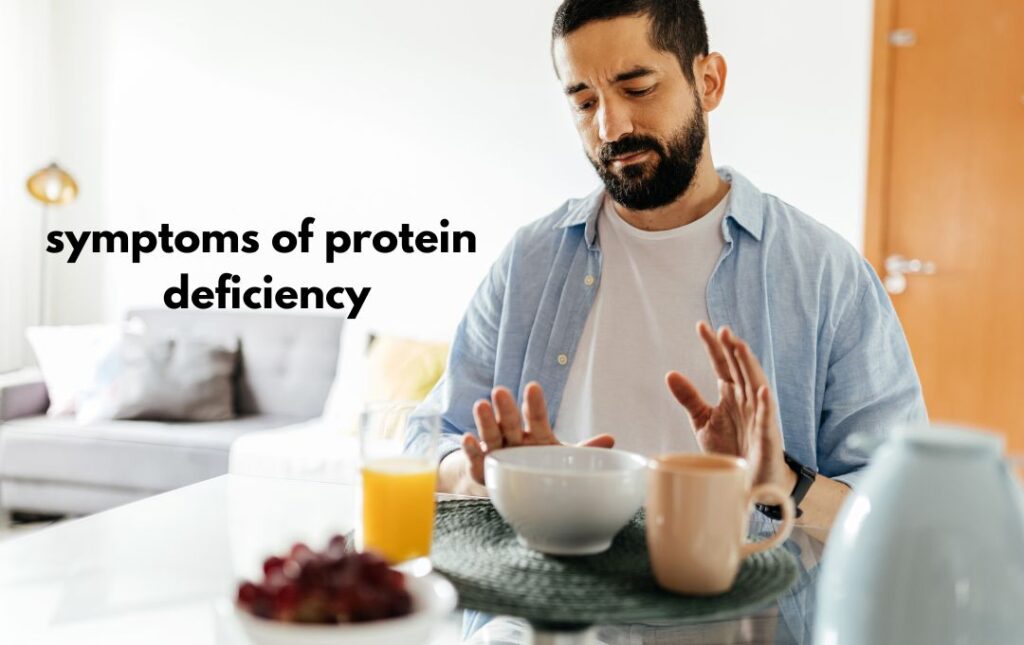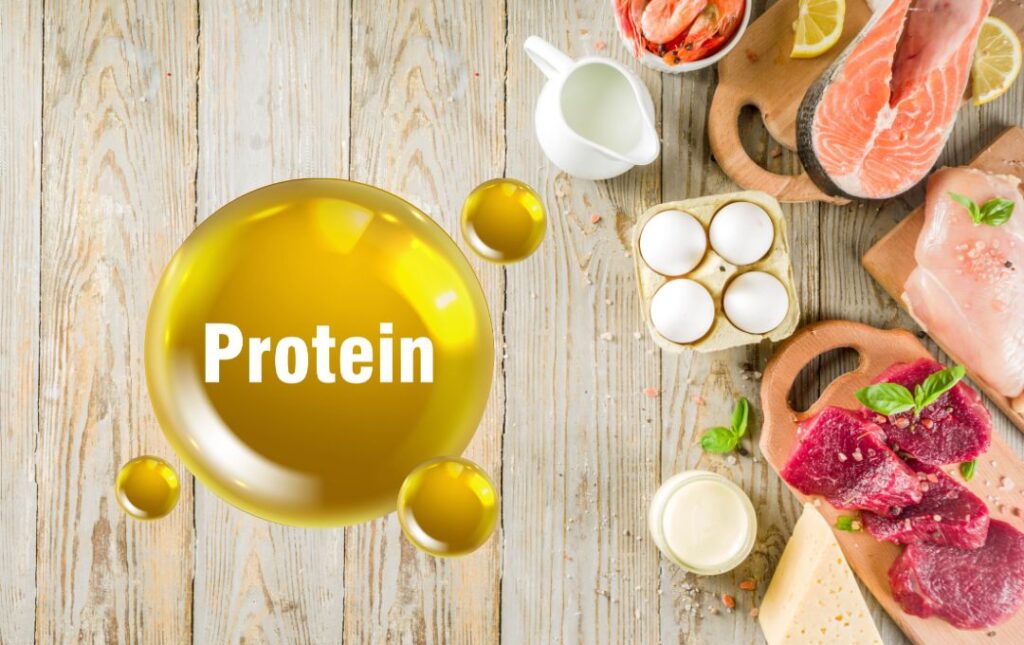Protein is essential for various functions of the body. This post explains what symptoms can occur when there is protein deficiency in the body and what is the appropriate source of protein.
Protein is the most important nutritional element for the development of the body, which is necessary for the health of our body. Protein is the source of the body’s useful amino acids, which are very important for the construction and health of our body. There are many types of proteins in our body, some of which our body cannot make amino acids, so we have to get these amino acids from our diet.
Protein provides us with energy. Due to this, we are able to do our daily tasks smoothly. When we eat protein rich food, it is available to us in the form of energy and energy remains in the body for a long time.
Protein helps build muscles of the body and along with this, it helps in the body’s ability to fight diseases. It plays an important role in the body’s ability to fight diseases and strengthens the immune system. Apart from this, protein also increases the ability of blood circulation by strengthening our blood, which helps the body fight diseases.
What can be the symptoms of protein deficiency in the body?

It is very important to understand the symptoms of protein deficiency in the body, by understanding which we can avoid serious problems caused by its deficiency because it can cause physical problems. If our daily protein diet is not sufficient or our body If protein is not absorbed properly, it can lead to protein deficiency in the body. Here we will understand in detail some of the major symptoms of protein deficiency in the body. Read More-10 Protein-rich foods that can be beneficial to Include in your Diet
1. Weakness of muscles: One of the main symptoms of protein deficiency is weakening of muscles, which causes pain in the muscles. This can cause physical weakness and fatigue, leading to reduced ability to function. Prolonged protein deficiency can lead to other problems, including decreased muscle strength and relaxation.
2. Energy deficiency: Lack of protein can lead to energy deficiency, which can make a person feel tired and often weak. This can lead to reduced ability to perform daily tasks and the person can also be affected in his social and professional life.
3. Weakness of hair and nails: Due to protein deficiency, hair and nails may suffer from weakness and breakage. Apart from this, hair baldness can also be caused by protein deficiency.
4. Decrease in body development: This problem is especially seen in children. There is lack of protein in the diet of children, which can delay their physical development. This can weaken their boredom and cause them various problems. Are.
5. Developmental problems in infants: Protein deficiency can cause developmental problems in pregnant women and infants. It can affect the physical and mental development of the child and affect his early life conditions.
6. Anemia: Due to protein deficiency, problems like anemia occur in the body, which can lead to problems like anemia. Due to blood deficiency, a person may have fatigue, dizziness, headache, and other related symptoms. .
7. Immune System: Protein deficiency can weaken the immune system, making the person more vulnerable to infectious diseases. This occurs due to the deficiency of proteins that help in making the immune system strong and healthy.
8. Physical weakness: Protein deficiency can also cause reduction in physical performance. Due to this, a person’s physical activities may slow down and his capacity may also reduce.
What measures should be taken to overcome protein deficiency?

To overcome protein deficiency, below are important tips that can help in achieving a healthy and protein-rich diet. By adopting the measures given below, a person can overcome protein deficiency and avoid the problems caused by it:
1. Protein-related diet: Consuming protein-related diet is the most important way to overcome protein deficiency. You can fulfill the protein deficiency by consuming foods like meat, fish, eggs, milk products, pulses, nuts, soya products and seeds etc.
2. Protein supplement: Many times the protein requirement of a person is not fulfilled by his diet, hence at such times protein supplement can be taken. These supplements are excellent sources of protein and can help overcome protein deficiency. But it is important to keep in mind that before taking protein supplements, definitely consult a doctor.
3. Use of protein-related products available in the market: Nowadays, there are many protein-rich foods available in the market, such as protein bars, protein shakes, protein biscuits and protein flour. These foods can help in increasing the amount of protein in the body and fulfilling the protein deficiency.
4. Protein-rich diet: Arranging protein-rich food can also help in overcoming protein deficiency. It is also important to consume good protein sources as well as fruits, vegetables, grains and dairy products.
5. Balanced diet: Taking a balanced diet is also helpful in removing protein deficiency. Because all the essential nutrients are available in proper quantity in a balanced diet, due to which the structure and functions of the body can be handled properly.

